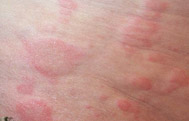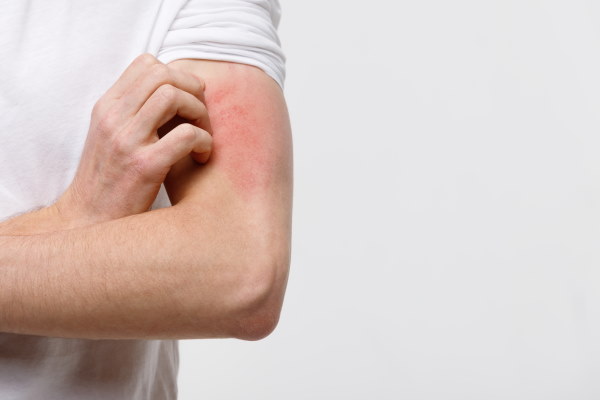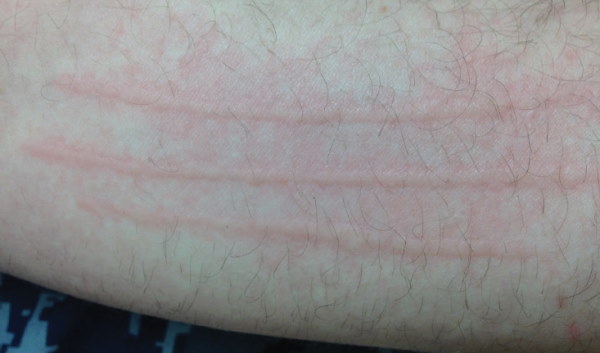

Urticaria, also known as hives, is a skin disease that occurs due to an infection or allergy due to a certain medication, food etc. The rashes or red patches caused due to urticaria are short lived and go away with time.
Hives are raised bumps on the skin that often itch. These bumps can appear on any part of the skin. Hives vary in size from as small as a pen tip to as large as a dinner plate. They may connect to form even larger wheals.
A hive often goes away in 24 hours or less. New Hives may appear as old ones fade, so Hives may last for a few days or longer. A bout of Hives usually lasts less than 6 weeks. These Hives are called acute Hives. If Hives last more than six weeks, they are called chronic Hives and this type should be thoroughly investigated through blood tests, skin biopsy and immunofluorescence technique. Many patients prefer not to get investigated, this is dangerous. Quoting Dr Agarwala, “It is like someone has repeated fever for weeks and months but instead of finding the cause they and their family prefer taking paracetamol. This is against the medical wisdom.”We should make an attempt to find the underlying cause.
Hives can cause the eyelids and lips to swell.If you have any trouble breathing or swallowing, get emergency care right away by visiting a nearby hospital.
Hives are common. Anyone can get them.
An allergic reaction can trigger Hives. Things that commonly trigger an allergic reaction include:
Other causes of Hives are:
When a patient has Hives, a dermatologist can often make the diagnosis by looking at the skin. Finding the cause of Hives, however, can be a challenge. This is especially true for Hives that have been around for more than six weeks.
To find out what is causing your Hives, a dermatologist will review your health history, ask questions, and do a physical exam. You may also need the following tests:
For most people, Hives are not serious. Children may outgrow the allergies that cause their Hives. The quality of life is significantly affected and hence appropriate treatment is much needed. If the Hives remain or become severe, it is important to get medical care. Hives can be a sign of an internal disease.

